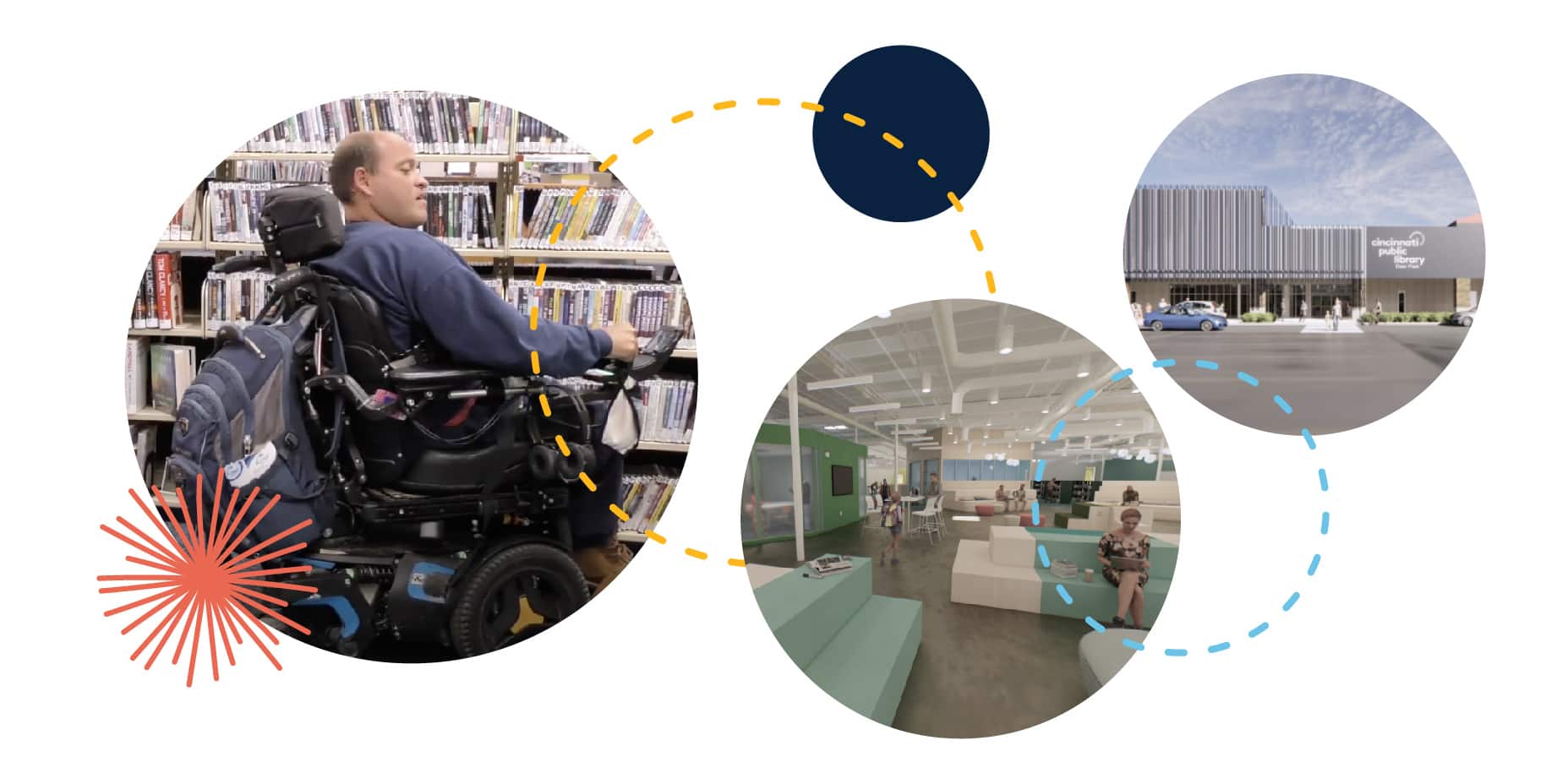 Written by Ryan Braun, Director of Community Relations, Hamilton County Developmental Disabilities Services
Written by Ryan Braun, Director of Community Relations, Hamilton County Developmental Disabilities Services
For more than 50 years, Hamilton County Developmental Disabilities Services (HCDDS) has championed community inclusion and accessibility for people with disabilities. HCDDS is a government social services agency, opens a new window, and every year we support more than 7,600 people with intellectual and developmental disabilities at all stages of life.
This month we’re celebrating the anniversary of the Americans with Disabilities Act (ADA), which was signed into law on July 26, 1990. The ADA is one of the most important and wide-reaching pieces of civil rights legislation in U.S. history. This landmark legislation includes five sections, also called “Titles,” each applying to a different area of life.
- Title I provides equal opportunities in the job force for people with disabilities. One important part of this section is the requirement for employers to make “reasonable accommodations,” or modifications to allow an employee with a disability to perform the essential functions of a job.
- Title II focuses on state and local government and requires equal access to government services, including public transportation.
- Title III requires private places that are open to the public, such as hotels, restaurants, and retail businesses, to make reasonable modifications to the way they do business so people with disabilities can access those places.
- Title IV ensures telephone and internet companies provide nationwide services that are available for people with hearing and speech disabilities. This section also requires closed captioning on federally funded public service announcements.
- Title V, the final section of the law, deals with miscellaneous provisions, including items related to insurance providers, attorney’s fees, and preventing retaliation.
But as local advocates have said, opens a new window, the ADA is the floor, not the ceiling. We must continue to work together to uphold the tenets of the ADA so we can ensure people with disabilities experience equal rights and are not discriminated against. The Cincinnati & Hamilton County Public Library recognizes the importance of accessibility and setting standards higher than those required by the Americans with Disabilities Act.
Library Updates Incorporate Accessibility and Inclusion
HCDDS is thrilled that their Building the Next Generation Library plan goes far beyond simple compliance with the ADA. Through their thoughtful approach, they’ve engaged the entire community, including people with disabilities, to listen and to understand their needs and their concerns. As a result, this plan features important design aspects that promote accessibility and inclusion, including sensory spaces, easy mobility, and more.
Among the Library's Building the Next Generation Library projects, the Deer Park Branch renovation and expansion is currently underway. The new 25,000 -square-foot space includes inclusionary features like automatic doors, more accessible shelving, wide aisles, larger restrooms, low nap carpets, and quiet spaces.
"Having accessibility and inclusion means the world to me and so many people with disabilities because they make sure we’re included and that we’re allowed to live our lives as freely and as we choose," said Michael Denlinger, an advocate, and current chair of the Ohio Developmental Disabilities Council.
Hear more from Denlinger, Deer Park Branch Manager Natalie Fields, and library customers Emily Funk and Amy Leever on why this branch's improvements are going to help the Library better serve customers of all abilities.
When people with disabilities have a seat at the table and are included in major projects like this from the beginning, our entire community becomes more inclusive, accessible, and welcoming. Hamilton County Developmental Disabilities Services is proud to continue our partnership with the Cincinnati & Hamilton County Public Library as we all work to make our community better.
Hamilton County Developmental Disabilities Services supports more than 7,600 people each year, from babies through senior citizens, by providing case management, monitoring service quality, and funding services provided by our community partners. We treat each person we serve as a unique individual and connect them to services to reflect the life they want. By collaborating with more than 1,000 certified providers, we’re able to support people to live a life that is important and meaningful to them, on their own terms. To learn more about HCDDS and how to qualify for services, visit our website, hamiltondds.org, opens a new window.


Add a comment to: Hamilton County Developmental Disabilities Services Glad Building the Next Generation Library Plan Goes Beyond ADA Compliance